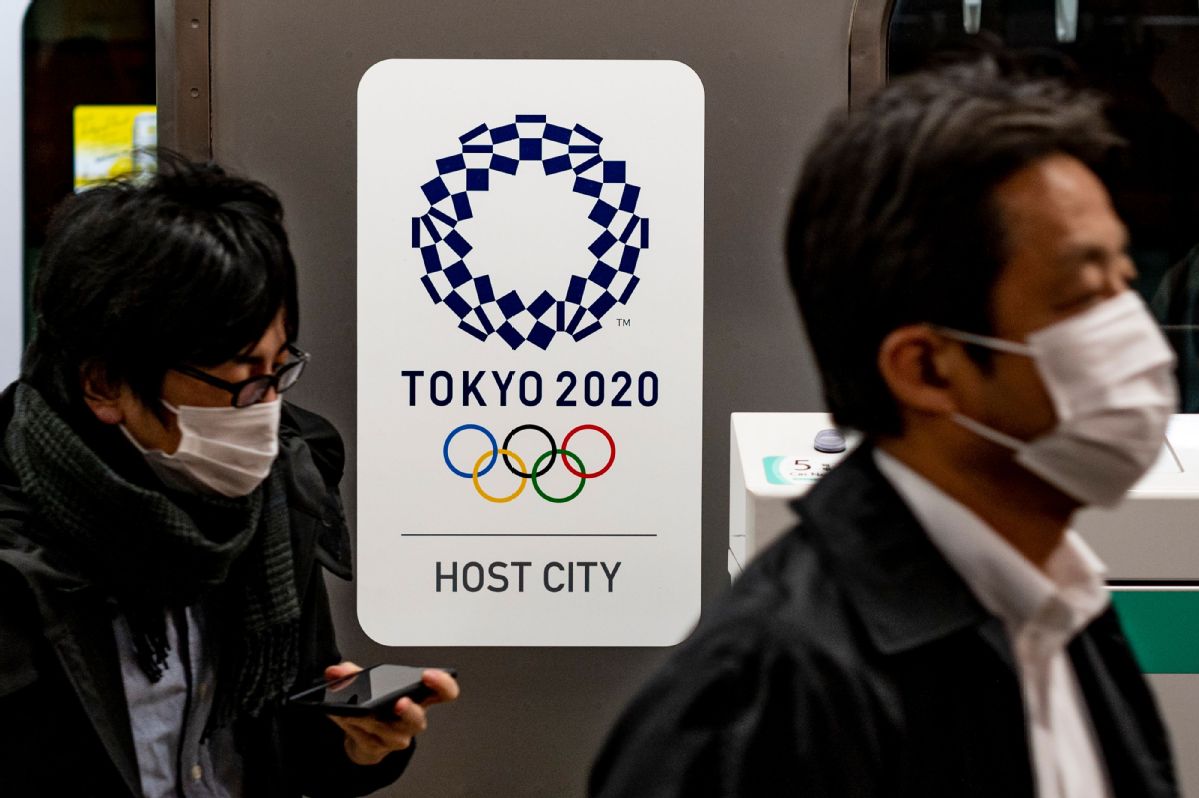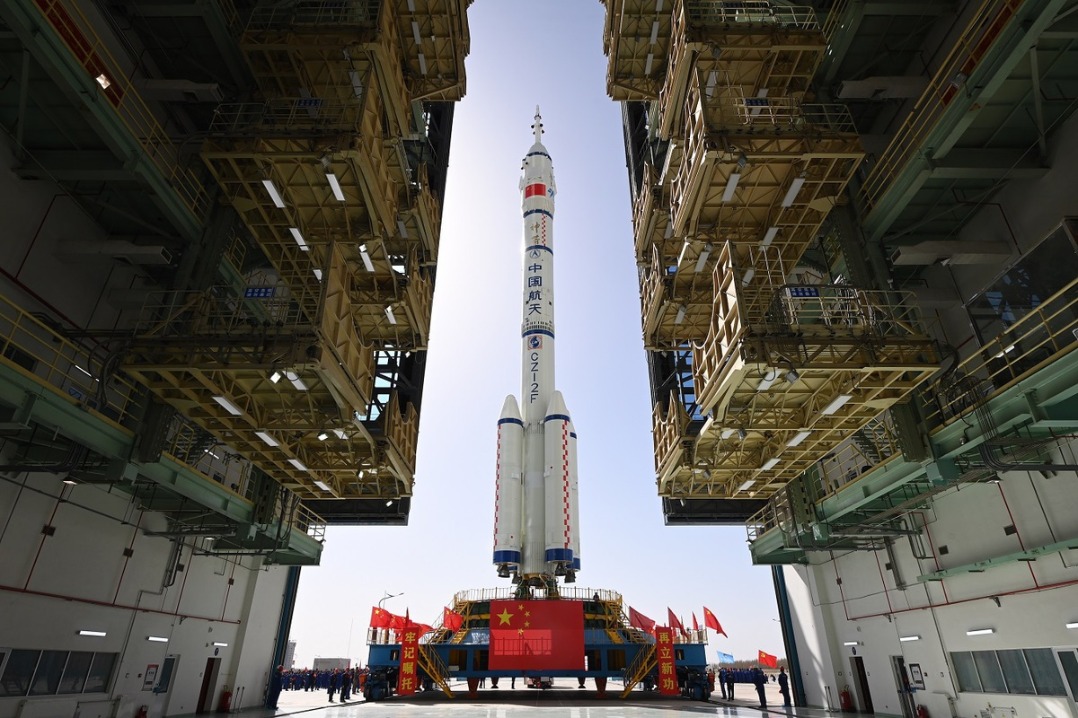Tokyo strives to keep Olympic dream alive amid doubts
By WANG XU in Tokyo | China Daily | Updated: 2020-12-31 09:43

On New Year's Day this year, 58,000 people watched a football game in Japan's just finished $1.4 billion National Stadium.
The game was so-so, but the setting was stunning. It was a test run for the opening of the Tokyo 2020 Olympics and Paralympics.
Everything seemed on course.
The test was largely flawless and the countdown to the July 24 opening ceremony looked like a surefire success. The Tokyo Metropolitan Government, the host of the Games, had earlier estimated that from winning the bid in 2013 to a decade after the games in 2030, the events would give a $294 billion boost to the national economy.
For the Japanese government, the Games offered a potent opportunity to show the country's recovery from the 2011 tsunami and Fukushima Daiichi nuclear accident.
The Olympic organizers had reasons to be optimistic, too.
They made the 2020 Games the most heavily sponsored sports event ever by receiving more than $3.1 billion from Japanese and international companies. However, the preparations were widely regarded to cost more than $25 billion.
Then COVID-19 hit Japan like a sledgehammer, throwing the country's plans into deep uncertainty.
After months of watching and debating, the Japanese government last March reluctantly accepted the inevitable and agreed with the International Olympic Committee, or IOC, on the first ever postponement of the Summer Games to July 2021.
Now, nine months on from that decision, the key questions facing the organizers revolve around how the increasing costs could be covered and how the Olympics can even be held in seven months' time with COVID-19 still raging.
The organizing committee unveiled on Dec 22 its new budget saying the official cost of the postponed Tokyo Olympics had increased by 22 percent, to $15.4 billion.
The additional $2.8 billion from last year's budget, the committee said, came from the one-year delay, forcing contracts to be renegotiated and adopting measures to combat the pandemic.
But Japan's National Audit Board said the costs are much higher than organizers are letting on. Overall spending then was forecast at $25 billion, meaning if rescheduling costs were included, the total bill could reach $30 billion.
"The Tokyo Olympics are operating in a very tough environment," Toshiro Muto, the CEO of the organizing committee, said when asked about the high costs.
He suggested the Games should be looked at as an investment rather than a pure expense.
Muto said Japanese government entities are responsible for all of the costs except for $6.7 billion in a privately funded operating budget.
The local organizers, on the other hand, are also trying to recover some of the costs by coaxing more revenue from domestic sponsors.
Nikkei reported last week that 15 top-tier domestic sponsors will add an estimated $150 million to their contributions. Those sponsors include Japan Airlines, ANA Airlines, and the Tobu Skytower.
"We would like to increase revenue more than expected although it is challenging," said Gakuji Ito, the organizing committee chief financial officer, while adding insurance coverage might pay out up to $500 million. The rest though will fall on the Tokyo Metropolitan Government.
Despite the heavy price, Japanese Prime Minister Yoshihide Suga has declared his desire of hosting the Olympics "at any cost".
Tokyo Governor Yuriko Koike this month said she sees "no circumstances" for canceling the Olympics despite rising coronavirus infections in Japan and public skepticism about hosting the Games.
The efforts of the officials were encouraged by IOC President Thomas Bach, who visited Tokyo in mid-November to inspect its facilities. Bach said "Tokyo is the best-ever prepared Olympic city" and the Games "would be the light at the end of this dark tunnel".
No matter how reassuring and keen the IOC and Japanese authorities are to press ahead, the risks are clear.
Welcoming 15,000 athletes from over 200 different territories, and perhaps hundreds of thousands of spectators, has the potential to create a catastrophic super-spreader event.
Troubling signs
Those troubling signs and the waning enthusiasm of the public have given the event a frosty reception.
In December, Japan saw new wave of infections. The one-day record of new cases have been updated almost every two to three days.
Although Japan had just over 2,800 COVID-19 deaths, an enviable tally compared with other industrialized economies, over 10 percent of the total have died in the first two weeks of December alone.
The number of cases is surging across the nation with public health experts warning the country's health system is on the verge of being overwhelmed.
The city of Osaka and the prefecture of Hokkaido pleaded for nurses from the military to mitigate grave staffing shortages.
The same thing is happening in other places in the country. The latest poll published in December by Japanese broadcaster NHK showed faltering support for holding the Games.
In a telephone survey of 1,200 people, 63 percent said the Olympics should be postponed or canceled. Only 27 percent said they should be held.
"Holding the postponed 2020 Olympics next July-as Japan appears determined to do-is crazy," Jeff Kingston, a professor at Temple University Japan, said in a recent Washington Post opinion piece.
Kingston said vaccines are not a solution for hosting the Olympics as they won't be available in Japan until sometime between March and May 2021. That would leave a narrow window for a national vaccination campaign.























